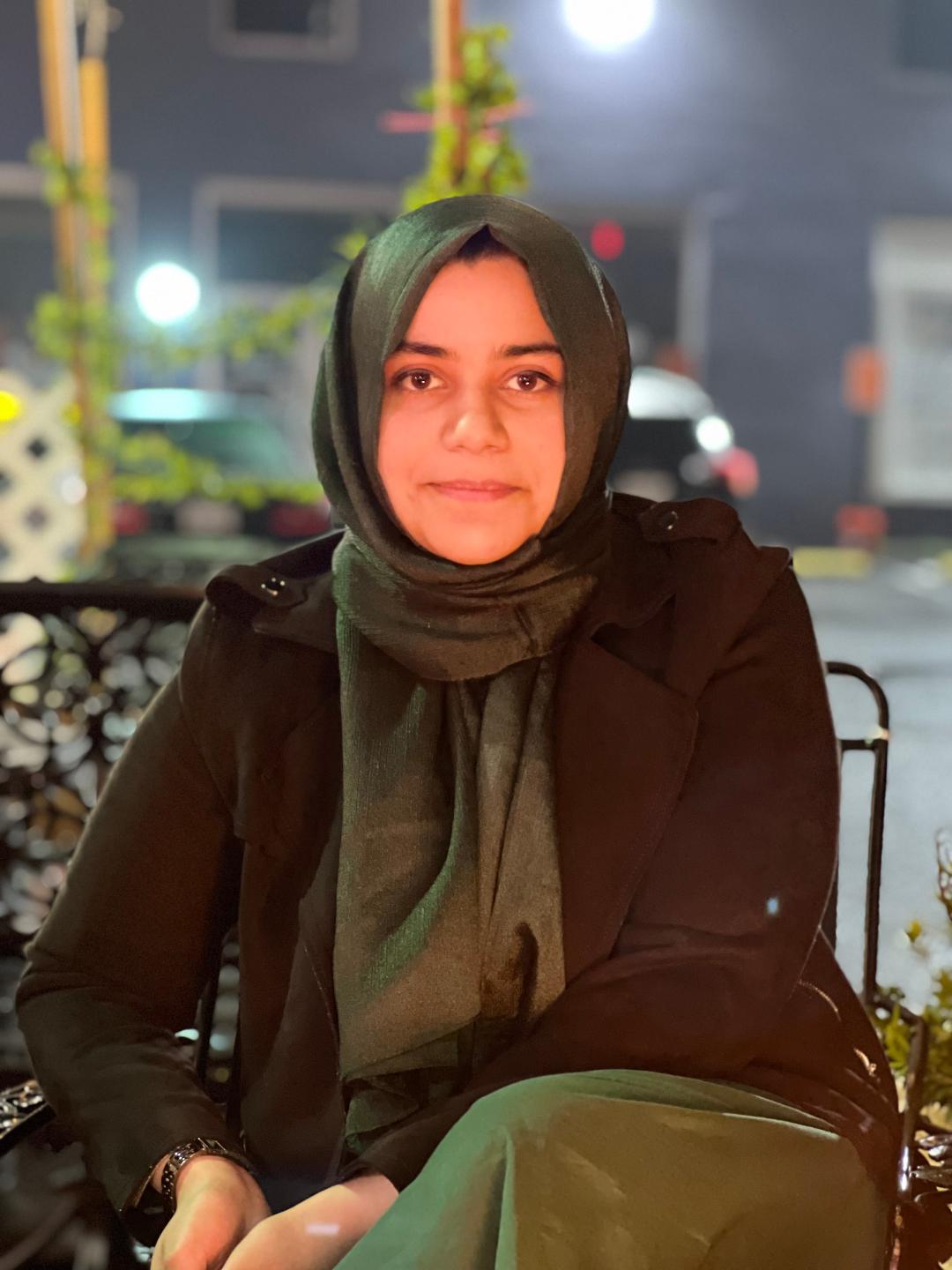Location, location, location. The popular mantra when it comes to real estate, epidemiology student Areesh Fatmee ’23 found it also applied when considering MPH programs. “I chose The George Washington University’s Milken Institute School of Public Health because DC is the best place to study diseases—all the work happening on them is happening right here,” explains Fatmee, a native of Pakistan who came to GW on a Fulbright Scholarship.
It ends up that Fatmee’s instincts were spot on, landing her the opportunity to help in DC Health’s response to monkeypox, or mpox, in the summer of 2022. “Dr. Anil Mangla, the epidemiologist for Washington, DC, was a guest lecturer in the infectious disease course I took with Dr. Amanda Castel in spring 2022,” she recounts. Fatmee was in the UK in May 2022 when that country experienced its initial outbreak of mpox. When she returned to the U.S., she reached out to Dr. Mangla, asking if DC Health had seen any mpox cases. “He said, ‘We have, and we’re working on it.’ I asked if I could help—I told him I wanted to step into the field and see how I could apply the theoretical skills I learned on outbreak surveillance and infectious epidemiology. He said, ‘Sure, let’s get to work.’”
At DC Health, Fatmee worked on two main projects. The first looked at the correlation of HIV and sexually transmitted infections (STIs) among mpox cases. “That was very interesting because there was a very high prevalence of mpox cases among immunocompromised individuals, primarily among those who had a positive HIV status,” she says. “And patients with HIV who contracted mpox had a very high prevalence of hospitalization. The outtake from this particular study was that we needed to leverage the systems to ensure a prompt healthcare response to individuals with HIV and STIs.”
For the second project, Fatmee analyzed the demographic and clinical profile of mpox cases and vaccine recipients in the district. “I examined the racial and ethnic spread of the vaccination program based on wards [DC is divided into eight geographic wards] and age to see what factors influenced vaccine uptake and if there were any disparities,” she says.
As she finishes up her MPH coursework, Fatmee is also completing a manuscript of DC Health’s mpox vaccine response, which will be submitted for publication with Dr. Mangla and the DC Health epidemiology team. She is grateful for the on-the-job experience. “I come from Pakistan, a country that is dealing with a lot of infectious diseases as compared to the U.S. One of the things I really wanted to see was the process of data analysis. Epidemiological analysis is critical if you are to get any meaning out of statistics,” she says. “Individuals cannot be treated like numbers. They have stories, they have experiences, and each experience is very personal to the disease. We can learn a lot about the reasons behind an outbreak by interviewing one individual. And if we have data from a lot of individuals, we can improve our outbreak surveillance system.”
Fatmee encourages other MPH students to take full advantage of GW’s fortuitous location. “My advice to incoming students is not to wait until you’ve finished your degree to step into the field and put your learning to work.”


